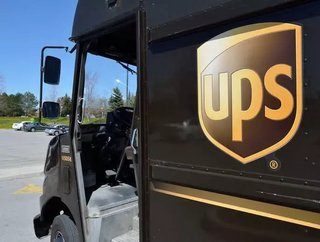Revealed: Top ten most valuable logistics brands in the world

UPS remains the world’s most valuable logistics brand, according to the latest Brand Finance Logistics 25 report, despite 1% year-on-year decrease in brand value to $22bn.
The company’s profits decreased by 7% as did its forecast revenue growth by 10%. Nevertheless, UPS remains at the top of the table as it continues to lead the way in technological advances.
The company recently invested $3bn to revamp its network and completed the first phase of the ORION project, a navigation system offering the most up-to-date routes for drivers, generating around $400mn in savings.
The top six brands collectively had a stagnant year, with aggregate brand value growth of just 0.2% between them, despite increased online retailing and consequent demand for delivery services.
In effect, it appears that the big logistics brands are being squeezed on both ends, by both customers and competitors. This is because local delivery brands are providing increased competition, and the large online retailers are able to demand lower prices.
Richard Haigh, Managing Director of Brand Finance, commented: “There is no doubt that forging a distinct brand helps a business to build resilience. As Amazon prepares to launch ‘Shipping with Amazon’, having a strong brand can help protect incumbents from this new competition.
SEE ALSO:
“Powerful brands alone will not be enough to prevent Amazon from gaining a foothold in the industry, however they will allow breathing room for the existing brands to riposte and limit their loss of market share.”
Meanwhile, FedEx (up 6% to US$18.2bn) retained second place supported by its acquisition of TNT Express. With this purchase, FedEx is taking steps to create a truly global network, and the first phase is complete as TNT Express packages can now be handled by FedEx drivers and enquiries to one platform can be solved from both.
However, the TNT acquisition has also caused problems for FedEx as the Petya cyber-attack created a loss of revenue due to decreased volumes at TNT Express as well as incremental costs associated with contingency plans and amending affected systems.
Although TNT services have been substantially restored, the economic consequences for future brand value could be considerable.
Top 10 in full (brand value):
- UPS - $22bn
- FedEx - $18.17bn
- Japan Railways Group - $11.1bn
- DHL - $10.7bn
- Union Pacific - $7.87bn
- McLane Company - $4.88bn
- Poste Italiane - $4.84bn
- CN- $4.41bn
- Deutsche Post – $4.25bn
- CSX - $4bn






